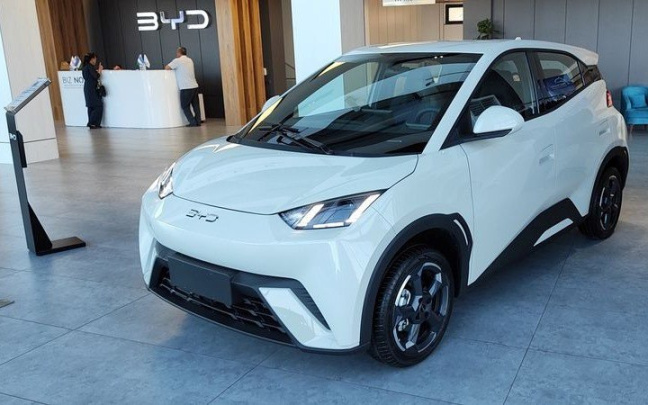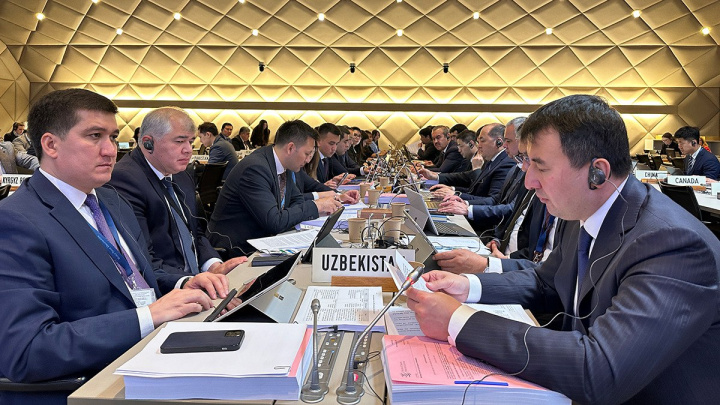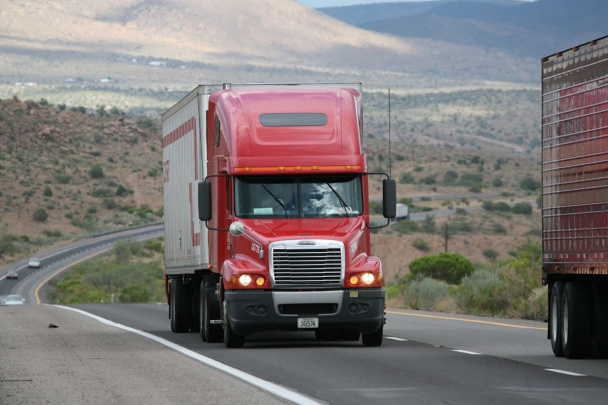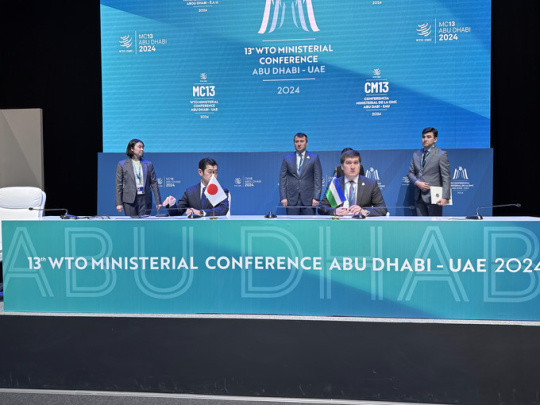Gov’t plans to reduce import of dozens types of goods
The Ministry of Foreign Trade is working on “import optimization”. Imports of certain goods may be reduced. The list includes water and beverages, polishing products, auto parts, tires, home appliances, and more.

Photo: Kun.uz
The Minister of Investments and Foreign Trade of Uzbekistan, Jamshid Khodjayev, held a meeting on “import optimization, development of inter-sectoral and inter-regional industrial cooperation” on September 24.
At the meeting, the implementation of the localization program, reducing the import of products whose analogues are produced in Uzbekistan were also discussed.
Kun.uz asked the Ministry of Investments and Foreign Trade for a list of “similar products” whose import is planned to be reduced.
According to the information provided by the ministerial press service, these products include ready-to-use binders for water and beverages, polishing products, automotive parts, prefabricated building structures, central heating boilers, air conditioners, refrigerators, conductors, electric heaters, and molds.
According to the Ministry, imported goods in January-August 2022 are 20% more than last year. Analogues of the above goods are produced in Uzbekistan.
Kun.uz tabulated the information provided for justification.
In addition, the ministry added that the same was observed with the import of central heating boilers, prefabricated building structures, air conditioners, refrigerators, conductors, electric heaters, etc., among others.
Unlike other goods, import data for this type of goods and information about manufacturers in the market are also not provided.
The ministerial information service did not answer our question about which way the import will be reduced – by introducing quotas or by increasing the level of localization.
“Soon there will be an event on this matter. The leadership says that the draft decisions are not ready yet. We cannot answer these questions yet,” Sanobar Umarova, head of the ministerial information service, said.
Also, for more than a month, our question about whether the level of competition in the market of restricted goods has been analyzed.
Kun.uz asked the Anti-Monopoly Committee about the competitive environment in the markets of goods whose imports are planned to be reduced. A response from the committee is awaited.
In 2021, the government of Uzbekistan approved a new form of import restriction – the quota procedure. According to it, tariff quotas can be applied to imported goods from March 3, 2022.
According to the regulation, reduced or current rates of import duty may be applied to goods imported to Uzbekistan in the specified volume within the tariff quota. The size of the tariff quotas, their validity period and the rate of import customs duty are determined by the Cabinet of Ministers.
Tariff quotas can be understood as setting annual (monthly or quarterly) quantitative limits for goods imported into the country.
At the time, economists said the order was a new tool to restrict trade and that the poor would suffer the most.
“One ministry distributes the specified quota amount to importers. In other words, it is up to the government to decide who to grant import rights to. And this by itself will cause further escalation of corruption not only in our country, but also in any country,” Mirkomil Kholboyev said.
“For almost 30 years, we have not been able to enter the WTO, we have been sharply cut off from the world market and have been engaged in “protection of the local market”. Since then, this trade philosophy has justified itself neither here nor anywhere else,” Bekhzod Khoshimov said.
“Behind the goal of supporting domestic manufacturers is actually using a group of domestic favorites,” Otabek Bakirov said.
Former Minister of Investments and Foreign Trade, currently Head of the Presidential Administration Sardor Umurzakov said that this does not mean that tariff quotas will be introduced for all goods.
“This is a mechanism that exists in all countries. This should not be misunderstood. There is no such thing as a quota for all products, it is given only for familiarity, and there is no such thing as a monopoly,” Umurzakov said.
In response, economist Mirkomil Kholboyev said that “it is not necessary to transfer bad experience”.
Uzbekistan was again reminded that it should remove trade barriers
At the economic forum of Uzbekistan held in Samarkand on November 3-4, World Bank experts reminded that trade barriers should be removed during the WTO membership discussion.
“If we talk about the policy of protectionism, if we protect some industry, we prevent the development of other sectors,” Antonio Nutsifora, manager of the World Bank's trade and regional integration practice, said.
It should be noted that Uzbekistan applied to become a member of the World Trade Organization in 1994.
Recommended
List of streets and intersections being repaired in Tashkent published
SOCIETY | 19:12 / 16.05.2024
Uzbekistan's flag flies high on Oceania's tallest volcano
SOCIETY | 17:54 / 15.05.2024
New tariffs to be introduced in Tashkent public transport
SOCIETY | 14:55 / 05.05.2023
Onix and Tracker cars withdrawn from sale
BUSINESS | 10:20 / 05.05.2023
Latest news
-
Uzbekistan tops medal table at Asian Cadet Judo Cup in Kazakhstan
SPORT | 18:42 / 05.07.2025
-
Uncertainty grows as new homes remain without gas supply
SOCIETY | 17:46 / 05.07.2025
-
Uzbekistan plans to launch national ferry service in Caspian Sea
SOCIETY | 16:03 / 05.07.2025
-
Dozens of violations, zero accountability: Fergana police cancel fines for chief’s wife’s car
SOCIETY | 16:02 / 05.07.2025
Related News

20:56 / 07.09.2024
Uzbekistan selling BYD Seagull for $4,300 more than its price in China

17:57 / 30.05.2024
Uzbekistan plans to join World Trade Organization by 2026

12:38 / 23.03.2024
Gold supplies provided half of Uzbekistan’s exports in February

14:20 / 04.03.2024



